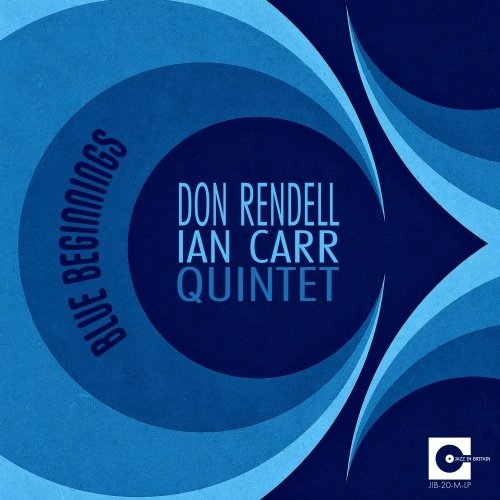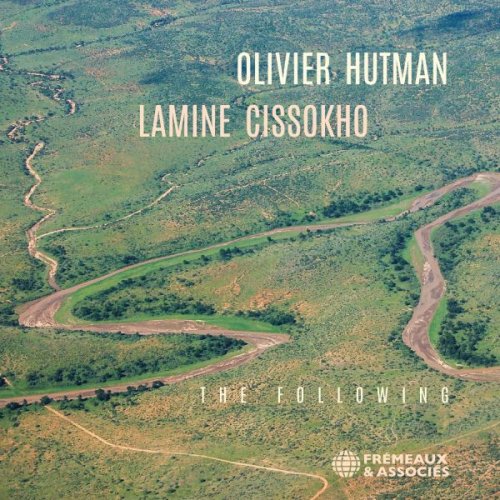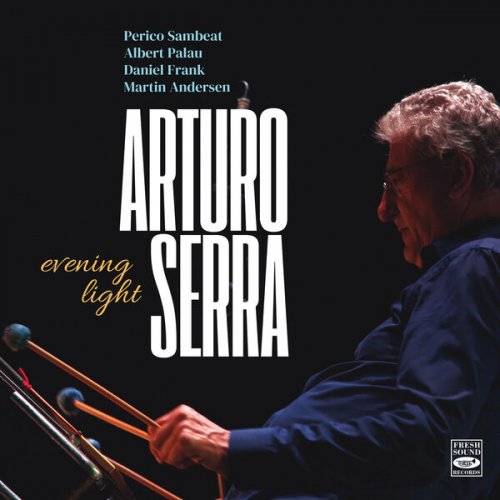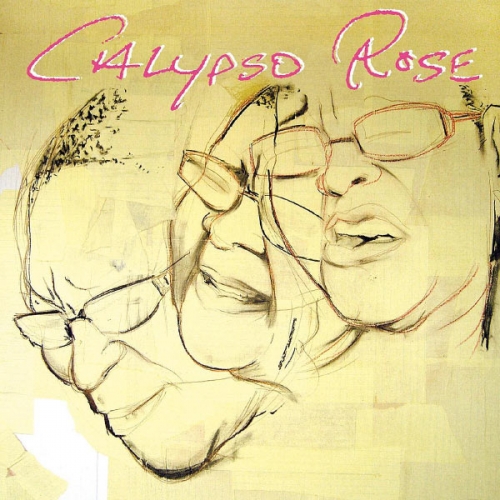Don Rendell Ian Carr Quintet - Blue Beginnings (2021) [Hi-Res]

Artist: Don Rendell Ian Carr Quintet
Title: Blue Beginnings
Year Of Release: 1964/2021
Label: Jazz In Britain Ltd.
Genre: Jazz
Quality: FLAC (tracks) 24/44,1 (mono), FLAC (tracks) (mono)
Total Time: 00:35:09
Total Size: 193 / 95 MB
WebSite: Album Preview
Tracklist:Title: Blue Beginnings
Year Of Release: 1964/2021
Label: Jazz In Britain Ltd.
Genre: Jazz
Quality: FLAC (tracks) 24/44,1 (mono), FLAC (tracks) (mono)
Total Time: 00:35:09
Total Size: 193 / 95 MB
WebSite: Album Preview
01 - Blue Doom 02:23
02 - Autumn Leaves 04:05
03 - Garrison '64 07:07
04 - Shades Of Blue 04:22
05 - Sailin' 05:45
06 - Latin Blue 02:33
07 - You'll Never Know 04:35
08 - Big City Strut 04:19
Summer 2021 is proving to be the summer British jazz delved into its mid 1960s through mid 1970s album back catalogue and previously unreleased tape archive, with both major and specialist labels such as Jazz In Britain joining in the party. The spur to action is, of course, the new and unprecedented popularity of British jazz at home and abroad.
The key to placing Blue Beginnings in its historical context is a quote from a contemporary review of the Don Rendell / Ian Carr Quintet's 1965 studio album Shades Of Blue (Columbia), of which Blue Beginnings is a previously unreleased 1965 recording of a live BBC broadcast of the same material. The reviewer, who is quoted in the liner notes of Blue Beginnings, wrote that Shades Of Blue was "matching and surpassing much of the stuff that is fobbed off on us from America." That assertion needs to be unpicked...
Until the mid 1960s, British jazz was regarded by some, probably most, British jazz fans as being inferior to its American parent, at best a copycat version. Understandably, British musicians were narked about that. But with a handful of exceptions, it was true—and only to be expected since jazz was created in America and British musicians had to learn the language from scratch before they could wax poetical in it. By the mid 1960s, however, the musicians had acquired fluency, as the YouTube clip below of Blue Beginnings' "Blue Doom" proves. But as the clip also suggests, British jazz was in the mid 1960s only just emerging from its copycat phase. "Blue Doom" is hard bop en pointe, but the truth is that there is nothing peculiarly British about it.
Blue Beginnings' liner notes assert that what we are listening to is American jazz "filtered through five very English sensibilities." This claim also needs to be unpicked. Putting aside the fact that one of those sensibilities was Scottish not English (that of trumpeter Ian Carr), this, frankly, is wishful thinking on the part of the writer. It is a get out of jail free card which has frequently been offered up to avoid the offence which would otherwise be given to the musicians concerned by stating the unvarnished truth (and offered also in an attempt to disguise the less than objective partisanship of the writer).
To hear British jazz that is both technically en pointe and conceptually British it is necessary to scroll forward a few years. The Don Rendell / Ian Carr Quintet itself became culturally singular on albums such as Dusk Fire (Columbia, 1966) and yet more so on Phase 111 (Columbia, 1968). By the start of the 1970s British jazz in general had hit its first historic peak of perfection, with albums by Ian Carr's Nucleus, Michael Gibbs' and Michael Garrick's orchestras, Neil Ardley's ensembles, Mike Westbrook's Concert Band, groups led by John Surman, and other lineups. Many of these musicians' early to mid 1970s work is being celebrated on Universal/Decca's 2021/22 album reissue program British Jazz Explosion: Originals ReCut, as well as releases on the estimable Jazz In Britain label. Meanwhile, the Rendell / Carr Quintet's Blue Beginnings shines a light on an important phase of the historical continuum. It is valuable for that, and also for containing some kicking, if still fundamentally American, jazz.
The key to placing Blue Beginnings in its historical context is a quote from a contemporary review of the Don Rendell / Ian Carr Quintet's 1965 studio album Shades Of Blue (Columbia), of which Blue Beginnings is a previously unreleased 1965 recording of a live BBC broadcast of the same material. The reviewer, who is quoted in the liner notes of Blue Beginnings, wrote that Shades Of Blue was "matching and surpassing much of the stuff that is fobbed off on us from America." That assertion needs to be unpicked...
Until the mid 1960s, British jazz was regarded by some, probably most, British jazz fans as being inferior to its American parent, at best a copycat version. Understandably, British musicians were narked about that. But with a handful of exceptions, it was true—and only to be expected since jazz was created in America and British musicians had to learn the language from scratch before they could wax poetical in it. By the mid 1960s, however, the musicians had acquired fluency, as the YouTube clip below of Blue Beginnings' "Blue Doom" proves. But as the clip also suggests, British jazz was in the mid 1960s only just emerging from its copycat phase. "Blue Doom" is hard bop en pointe, but the truth is that there is nothing peculiarly British about it.
Blue Beginnings' liner notes assert that what we are listening to is American jazz "filtered through five very English sensibilities." This claim also needs to be unpicked. Putting aside the fact that one of those sensibilities was Scottish not English (that of trumpeter Ian Carr), this, frankly, is wishful thinking on the part of the writer. It is a get out of jail free card which has frequently been offered up to avoid the offence which would otherwise be given to the musicians concerned by stating the unvarnished truth (and offered also in an attempt to disguise the less than objective partisanship of the writer).
To hear British jazz that is both technically en pointe and conceptually British it is necessary to scroll forward a few years. The Don Rendell / Ian Carr Quintet itself became culturally singular on albums such as Dusk Fire (Columbia, 1966) and yet more so on Phase 111 (Columbia, 1968). By the start of the 1970s British jazz in general had hit its first historic peak of perfection, with albums by Ian Carr's Nucleus, Michael Gibbs' and Michael Garrick's orchestras, Neil Ardley's ensembles, Mike Westbrook's Concert Band, groups led by John Surman, and other lineups. Many of these musicians' early to mid 1970s work is being celebrated on Universal/Decca's 2021/22 album reissue program British Jazz Explosion: Originals ReCut, as well as releases on the estimable Jazz In Britain label. Meanwhile, the Rendell / Carr Quintet's Blue Beginnings shines a light on an important phase of the historical continuum. It is valuable for that, and also for containing some kicking, if still fundamentally American, jazz.

![Fabiano do Nascimento - Vila (2026) [Hi-Res] Fabiano do Nascimento - Vila (2026) [Hi-Res]](https://img.israbox.com/img/2026-02/26/o4t38f6qf24pvc3bqzanbhsz3.jpg)


![El Calefón - Salir Del Agujero (2026) [Hi-Res] El Calefón - Salir Del Agujero (2026) [Hi-Res]](https://img.israbox.com/img/2026-02/26/sm3fq4x280rjvn4eh85ksne6j.jpg)

![Martin Listabarth Trio - In Her Footsteps (2026) [Hi-Res] Martin Listabarth Trio - In Her Footsteps (2026) [Hi-Res]](https://www.dibpic.com/uploads/posts/2026-02/1771946819_folder.jpg)

